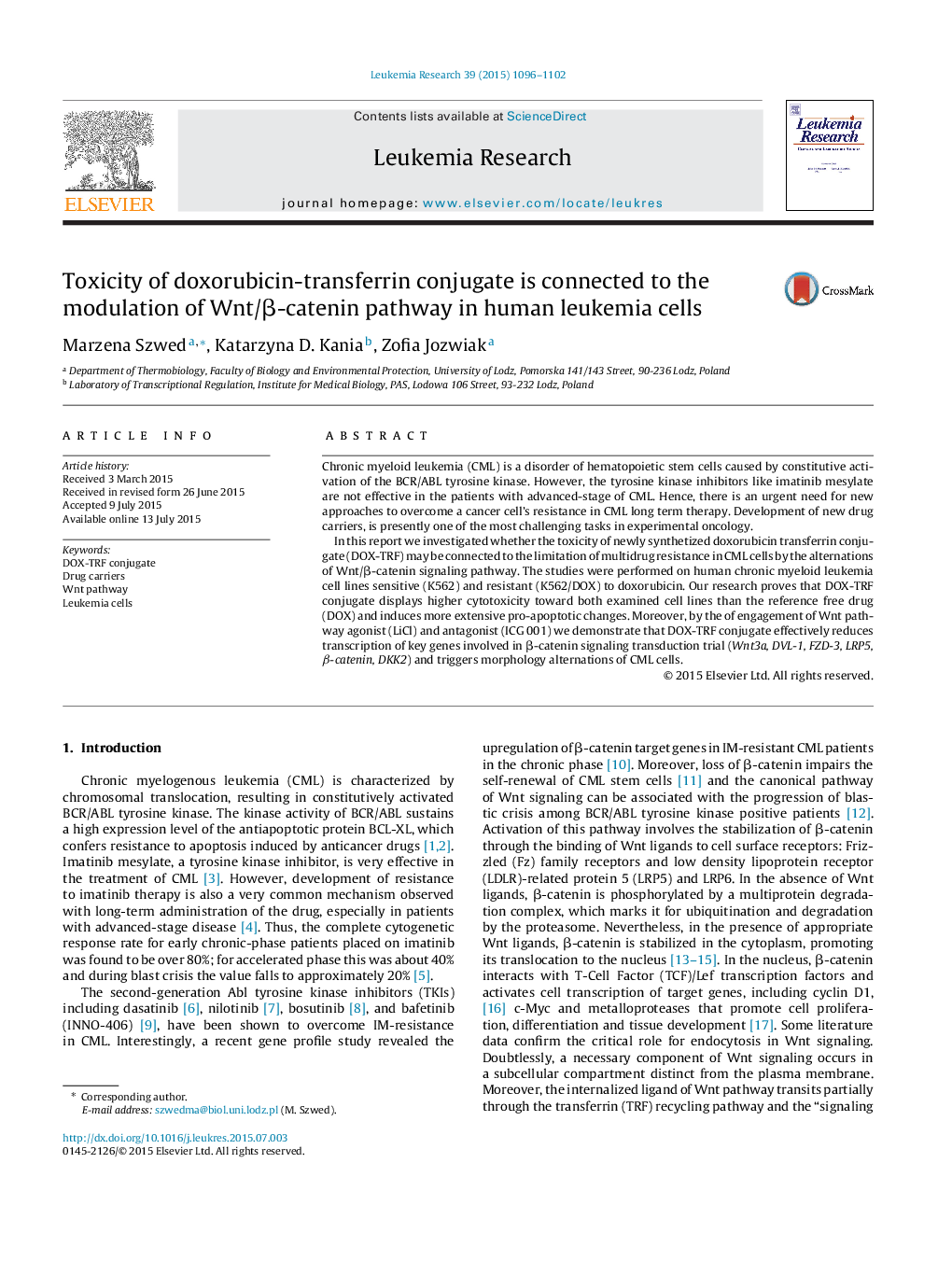| Article ID | Journal | Published Year | Pages | File Type |
|---|---|---|---|---|
| 2136505 | Leukemia Research | 2015 | 7 Pages |
•Toxicity of DOX-TRF is related to the disturbance of the Wnt/β-catenin pathway.•TRF can direct drugs to cancer cells with overexpression of Wnt ligands.•DOX-TRF-induced apoptosis is promoted by the Wnt/β-catenin pathway inhibition.
Chronic myeloid leukemia (CML) is a disorder of hematopoietic stem cells caused by constitutive activation of the BCR/ABL tyrosine kinase. However, the tyrosine kinase inhibitors like imatinib mesylate are not effective in the patients with advanced-stage of CML. Hence, there is an urgent need for new approaches to overcome a cancer cell's resistance in CML long term therapy. Development of new drug carriers, is presently one of the most challenging tasks in experimental oncology.In this report we investigated whether the toxicity of newly synthetized doxorubicin transferrin conjugate (DOX-TRF) may be connected to the limitation of multidrug resistance in CML cells by the alternations of Wnt/β-catenin signaling pathway. The studies were performed on human chronic myeloid leukemia cell lines sensitive (K562) and resistant (K562/DOX) to doxorubicin. Our research proves that DOX-TRF conjugate displays higher cytotoxicity toward both examined cell lines than the reference free drug (DOX) and induces more extensive pro-apoptotic changes. Moreover, by the of engagement of Wnt pathway agonist (LiCl) and antagonist (ICG 001) we demonstrate that DOX-TRF conjugate effectively reduces transcription of key genes involved in β-catenin signaling transduction trial (Wnt3a, DVL-1, FZD-3, LRP5, β-catenin, DKK2) and triggers morphology alternations of CML cells.
Graphical abstractFigure optionsDownload full-size imageDownload high-quality image (113 K)Download as PowerPoint slide
